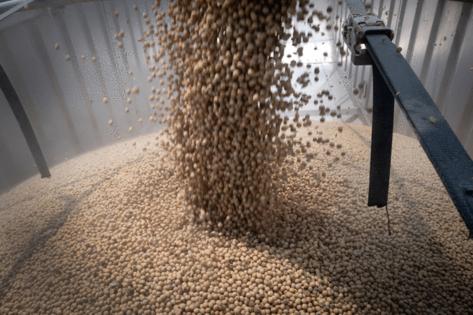Soybeans surge as US-China talks spur hope for trade revival
Published in Business News
Soybeans and other crops soared as progress in negotiations between the U.S. and China lifted hopes that the world’s two largest economies were edging toward a deal in their protracted trade war.
Soy futures rose as much as 2.8% in Chicago, reaching the highest since July 2024. That came after U.S. Treasury Secretary Scott Bessent said China would make “substantial” purchases of the oilseed under a pact the two countries are close to finalizing. Wheat jumped by the most since Aug. 12.
Agricultural trade was among a range of issues that American and Chinese negotiators said they came to terms on over the weekend, setting the table for leaders Donald Trump and Xi Jinping to finalize a deal and ease tensions that have rattled global markets. The two are expected to meet later this week in South Korea on the sidelines of the APEC summit.
Soybeans have been a central point of tension between the two agricultural giants. China, the world’s top importer of the crop, has deployed it as a bargaining chip in its trade war with the U.S., shunning shipments from its second-largest supplier, and turning instead to South America for record imports. U.S. farmers, suffering from financial strain as their top consumer walked away, have urged Washington to reach an agreement with Beijing.
Data from the U.S. Department of Agriculture on Monday showed weekly America soy shipments of about 1.06 million tons, down 33% from the previous week with nothing loaded for China.
Some analysts are bullish on China’s demand for late 2025 and into next year, before Brazil starts harvesting what’s estimated to be another record harvest.
“China has yet to secure much of its soybean supply for December and January,” Total Farm Marketing analyst Naomi Blohm said in a Monday note, estimating the country’s potential needs in those months of 8 million to 9 million tons.
Others see limited room for new U.S. sales in the months ahead.
“Because China has bought a lot of soybeans out of Brazil and Argentina, its near-term need is modest,” said Cornucopia Agri Analytics strategist Tobin Gorey. “But where we should see it is a pick-up in forward sales at some point. The issue for the market now boils down to timing, rather than size.”
On Monday, the Chinese Communist Party’s official mouthpiece called on the world’s biggest economies to “jointly safeguard hard-won achievements” from their latest trade talks, but stopped short of confirming plans to renew purchases of U.S. soybeans.
Still, the warming of trade relations was welcomed after the dispute has clouded markets all year.
“No hard fast deals have yet been signed, so things could still fall apart. But optimism rules the day,” StoneX chief commodities economist Arlan Suderman said in a note.
(With assistance from Srinidhi Ragavendran.)
©2025 Bloomberg L.P. Visit bloomberg.com. Distributed by Tribune Content Agency, LLC.












Comments